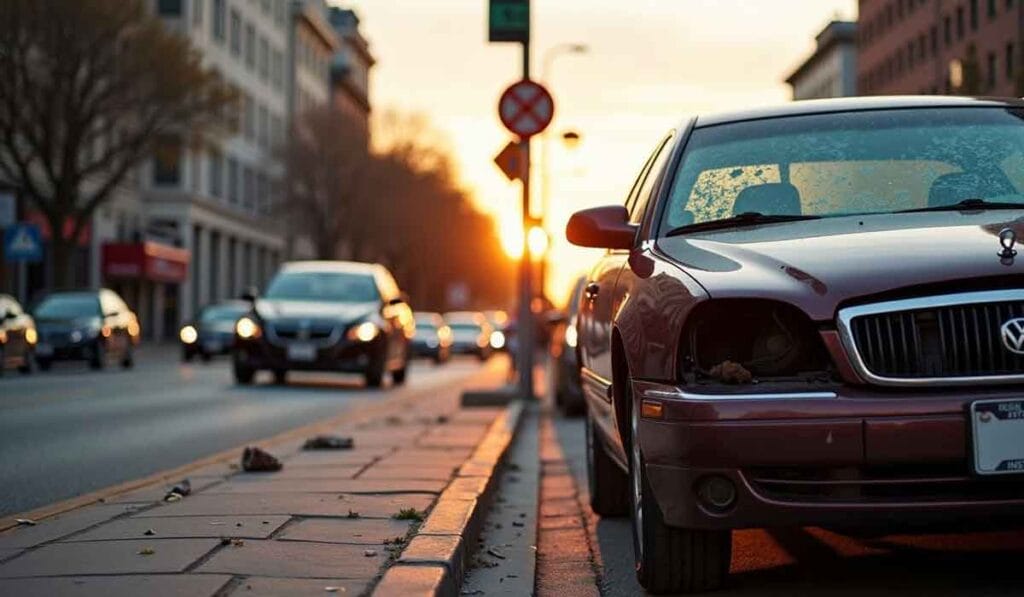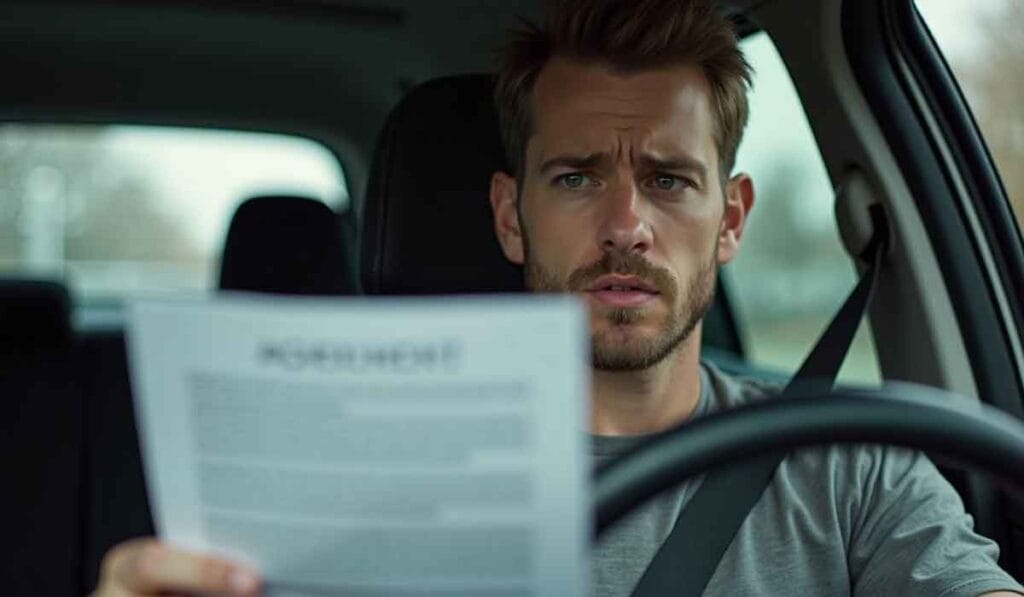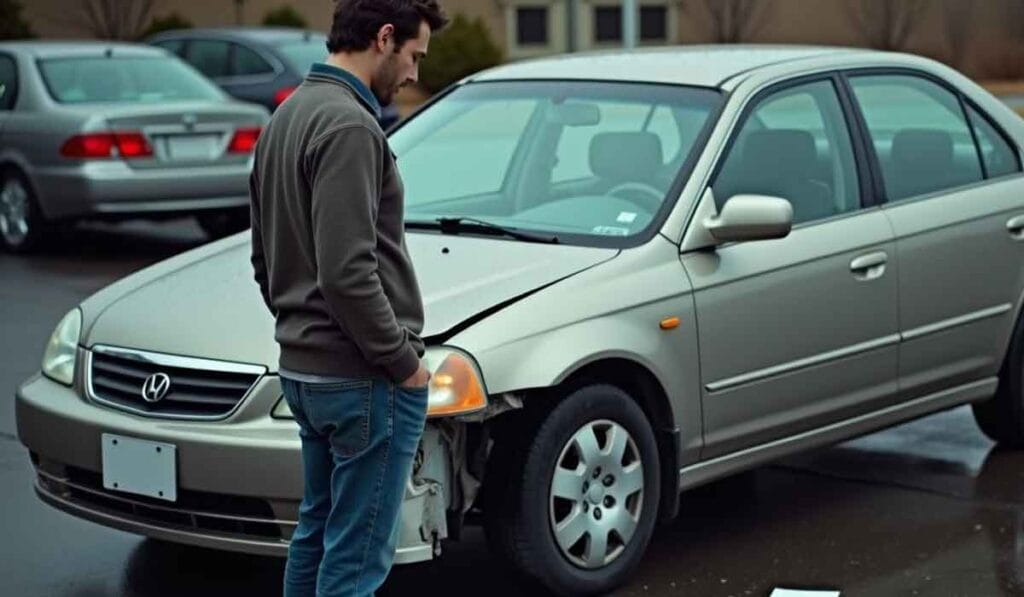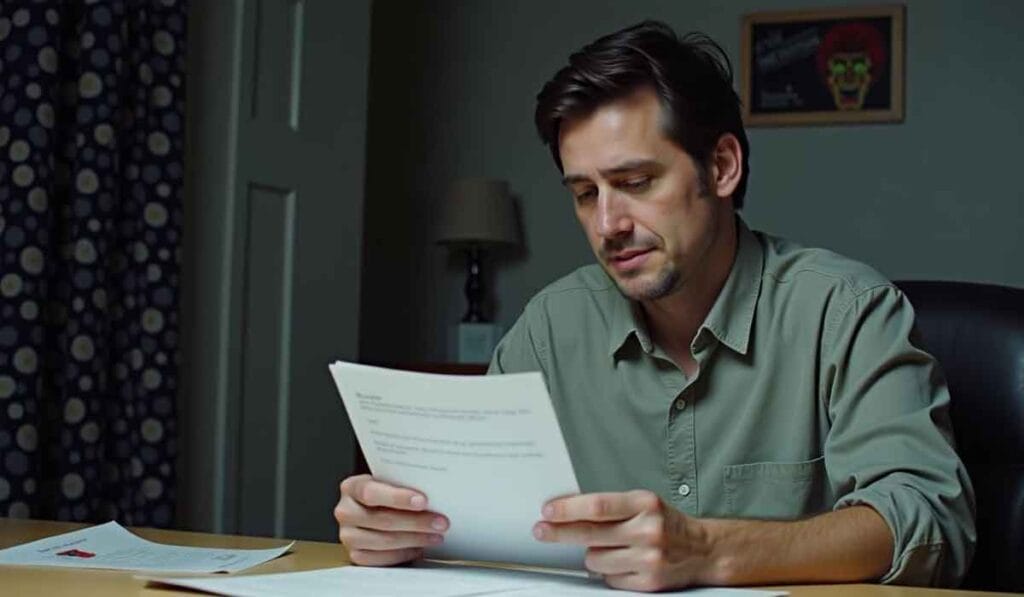Rental Car Accident Not At Fault Assistance
Getting into a car accident with a rental car can be confusing and stressful.
Most people don’t know their rights in these situations.
This article will help you understand your Rental Car Rights After A Car Accident.
Please note: We are accident doctors who charge you $0 out of pocket for the best after car accident medical care.
You should come in and get treated by us first, and then we’ll refer you to the top auto accident attorneys in Phoenix or Mesa.
Key Takeaways
- Check for injuries and ensure safety first. Exchange contact details with the other driver.
- Notify your rental agency and insurance company right away. Give them all necessary information like photos and a police report.
- Understand if you have Collision Damage Waiver (CDW) or Loss Damage Waiver (LDW). These can limit how much you pay after an accident.
- Compare personal car insurance with rental agency coverage. This helps avoid extra costs.
- You may get a replacement vehicle while the original one is repaired. Make sure it’s covered by the responsible party’s insurer if they caused the accident.
Initial Actions Following a Rental Car Accident
Check for injuries and ensure everyone’s safety. Exchange contact information with the other driver, and document the scene thoroughly.
Assess injuries and secure safety

Turn on your car’s hazard lights to alert others. This helps prevent further accidents from other motorists not seeing your vehicle in time.
Always prioritize safety over everything else during this initial phase after a collision with rental cars.
Swap contact details and record the incident

After a car accident, gather contact details from everyone involved. Collect names, phone numbers, addresses, and insurance information.
Also note the vehicle’s make and model.
Confirm all details by showing each other your driver’s licenses and insurance cards to avoid any mistakes.
Next, record the incident accurately.
Take photos of all vehicles from different angles to capture damage clearly.
Write down specifics like time, location, weather conditions, and road signs nearby.
Get statements from any witnesses with their contact info as well.
This thorough documentation will help in processing your insurance claim efficiently with both car rental companies and personal insurers.
Communicating with Your Rental Agency

Contact your rental agency immediately after the accident.
Provide them with all necessary details, including photos and a copy of the police report.
Report the crash
Report the crash to your rental car company as soon as possible.
Provide them with details like the time, date, and location of the accident.
Share other important information such as descriptions of any damage and injuries.
Next, contact your insurance company to inform them about the incident.
They will guide you on how to proceed with claims and coverage.
Ensure you have all necessary documents ready for this process.
Learn about policies regarding accidents

Rental car companies have specific policies regarding accidents. You need to understand these to avoid surprises.
First, check if you opted for a Collision Damage Waiver (CDW) or Loss Damage Waiver (LDW).
These waivers can limit your financial responsibility in an accident. Yet, they might not cover everything.
Knowledge of rental policies is the first step to protection.
Next, look into whether your personal auto insurance covers rental cars.
Some credit cards provide extra coverage if used to rent the vehicle.
Contact your insurance agent to verify details and ensure you’re protected adequately before renting a car.
Insurance Considerations
Comparing your personal car insurance with the rental agency’s coverage can save you money. You might also need to deal with the responsible party’s insurer for claims.
Comparing personal and agency insurance

Understanding the differences between personal and agency insurance is vital after a rental car accident. Here’s a detailed comparison to guide you.
| Aspect | Personal Insurance | Agency Insurance |
|---|---|---|
| Coverage Scope | Covers your primary vehicle | Specifically covers the rental car |
| Claim Process | File claims through your insurer | File through the rental agency |
| Deductibles | May have higher deductibles | Often lower deductibles |
| Impact on Rates | Accidents may raise your rates | Usually no impact on your personal rates |
| Legal Obligations | Must follow personal insurance policies | Must follow rental agency policies |
| Cost | Included in your existing plan | Additional fee during rental |
| Additional Benefits | May offer more comprehensive coverage | Focused on rental duration |
Managing claims with the responsible party’s insurer
Contact the responsible party’s insurer to start your claim.
Provide all necessary details, including contact information and photos of the accident scene as evidence.
Be clear about any injuries or damages you sustained.
Keep records of every conversation with the insurance company. Follow up regularly to ensure they process your claim promptly.
If needed, consult a personal injury attorney for guidance on complicated issues like pain and suffering compensation.
Understanding Your Legal Entitlements

You have the right to know who is financially responsible for any vehicle damage. You can also get a replacement car during repairs or until the claim settles.
Determining financial responsibility for vehicle damage
First, assess who caused the car crash. If another driver was negligent, their liability insurance should cover the damage.
Gather evidence like photos and witness statements to support your claim.
Contact your own insurance company as well; they may handle subrogation to recover costs from the at-fault party’s insurer.
Consider the rental agreement terms.
Often, rental car companies offer collision damage waivers (CDW).
These waivers can limit your financial responsibility for vehicle damage.
Check if you opted for this coverage when you rented the car.
Also, see if your credit card offers any protection for rental cars in accidents.
This can ease out-of-pocket expenses significantly.
Securing a replacement vehicle

Your rental car company should provide a replacement vehicle after an auto accident. Contact the agency immediately to start the process.
Most agencies have clear policies on crash procedures and will guide you through securing another car.
If you’re not at fault, ensure the responsible party’s insurance covers your rental reimbursement coverage.
This means their insurer pays for your new rental while your original one gets fixed or assessed as a total loss.
Always check what liability coverage applies to avoid out-of-pocket expenses later.
Conclusion

Understanding your rental car rights can change the game after an accident.
Knowing what steps to take ensures you handle the situation efficiently.
You safeguard your finances and get back on the road faster.
Keep informed and protect yourself every step of the way.
FAQs
1. What are my rights when renting a car after an accident?
After a car wreck, you have the right to rent a vehicle while yours is being repaired. Your insurance carrier may cover the rental costs based on your policy.
2. How do insurance companies handle rental cars after accidents?
Insurance companies often provide direct billing for rental cars and may subrogate costs from the at-fault party’s insurer in cases of negligence.
3. Can I claim reimbursement for out-of-pocket expenses related to renting a car?
Yes, you can file an insurance claim to get cash back for any out-of-pocket expenses incurred due to renting a car following motor accidents.
4. What should I know about uninsured motorists and rental cars?
If involved with an uninsured motorist, your own insurance policy might cover the cost of your rented SUV or luxury vehicle under certain conditions.
5. Are there perks associated with using specific credit cards like American Express for rentals?
Using cards such as American Express Platinum can offer benefits like cashback, loyalty programs, or coverage for loss of use during auto accidents.
6. Should I seek legal assistance if facing issues with my rental car company post-accident?
Consulting law firms or personal injury lawyers can help navigate disputes about medical expenses or emotional distress linked to vehicular collisions involving rented trucks or other vehicles.

